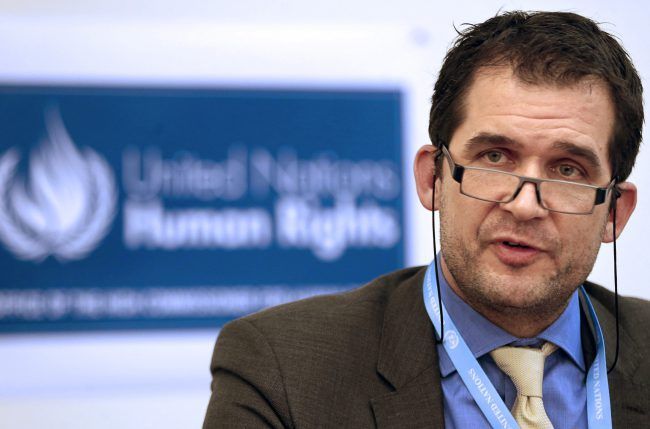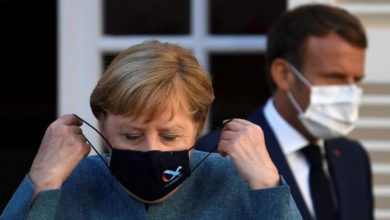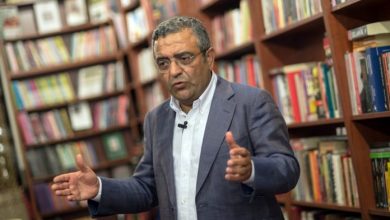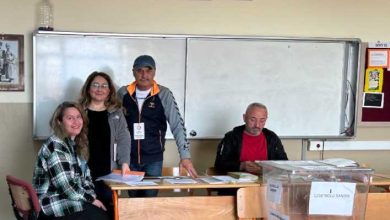Turkey: UN expert says deeply concerned by rise in torture allegations
UN Expert Melzer Says Deeply Concerned By Rise In Torture Allegations In Turkey
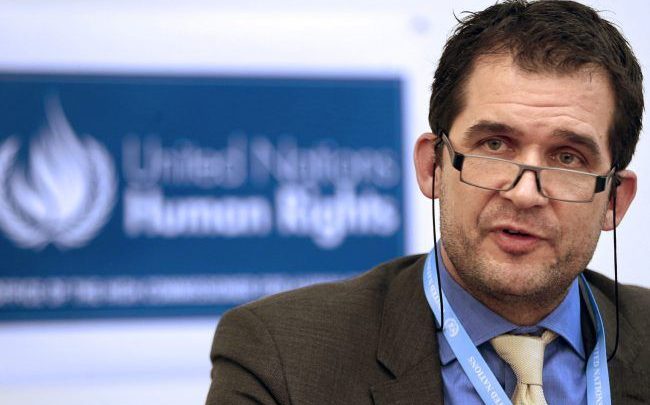
UN Special Rapporteur on Torture Nils Melzer has expressed serious concerns about the rising allegations of torture and other ill treatment in Turkish police custody since the end of his official visit to the country in December 2016.
Melzer said he was alarmed by allegations that large numbers of individuals suspected of links to the Gülen movement or the armed Kurdistan Workers’ Party (PKK) were exposed to brutal interrogation techniques aimed at extracting forced confessions or coercing detainees to incriminate others.
Reported abuse included severe beatings, electrical shocks, exposure to icy water, sleep deprivation, threats, insults and sexual assault.
The special rapporteur said no serious measures appeared to have been taken by the authorities to investigate these allegations or to hold the perpetrators accountable.
Instead, complaints asserting torture were allegedly dismissed by the prosecutor citing a “state of emergency decree [Article 9 of Decree no. 667]” that exempts public officials from criminal responsibility for acts undertaken in the context of the state of emergency.
“The human right to be free from torture and other ill-treatment is absolute and non-derogable, and continues to apply in all situations of political instability or any other public emergency,” the Special Rapporteur said. No circumstances, however exceptional and well argued, can ever justify torture or any form of impunity for such abuse.
“Torture is not only a notoriously ineffective interrogation method, but it constitutes the most fundamental assault on human dignity and is invariably listed among the most serious international crimes, including war crimes and crimes against humanity.”
Melzer said by inviting his mandate to visit the country in December 2016, soon after an attempted coup, the government had demonstrated its commitment to its official “zero tolerance” policy on torture.
“However, the authorities’ failure to publicly condemn torture and ill-treatment, and to enforce the universal prohibition of such abuse in daily practice seems to have fostered a climate of impunity, complacency and acquiescence which gravely undermines that prohibition and, ultimately, the rule of law,” he said.
The special rapporteur also said he remained keen to engage in a “direct and constructive dialogue” with the Turkish authorities to achieve full implementation of the prohibition on torture and ill treatment.
In a report titled “Tortured to Death”, SCF investigators exposed on Nov. 21, 2017 the case of 42-year-old history teacher Gökhan Açıkkollu, who died after enduring 13 days of torture and abuse in police detention in İstanbul.
The torture, ill-treatment, abusive, inhuman and degrading treatment of people who are deprived of their liberties in Turkey’s detention centers and prisons have become the norm rather than the exception under increased nationalistic euphoria and religious zealotry in the country in the wake of a controversial coup attempt on July 15, 2016.
Stockholm Center for Freedom (SCF) has reported one of its studies titled “Suspicious Deaths and Suicides In Turkey” that there has been an increase in the number of suspicious deaths in Turkey, most in Turkish jails and detention centers where a torture and ill-treatment is being practiced. In most cases, authorities concluded these as suicides without any effective, independent investigation.
The suspicious deaths have also taken place beyond the prison walls amid psychological pressure and threats of imminent imprisonment and torture, sometimes following the release of suspects or just before their detention. SCF has compiled 107 cases of suspicious death and suicides in Turkey in a list as of February 27, 2018 in a searchable database format.
Turkey survived a controversial military coup attempt on July 15, 2016 that killed 249 people. Immediately after the putsch, the Justice and Development Party (AKP) government along with autocratic Turkish President Recep Tayyip Erdoğan pinned the blame on the Gülen movement.
Fethullah Gülen, who inspired the movement, strongly denied having any role in the failed coup and called for an international investigation into it, but President Erdoğan — calling the coup attempt “a gift from God” — and the government initiated a widespread purge aimed at cleansing sympathizers of the movement from within state institutions, dehumanizing its popular figures and putting them in custody.
Turkey has suspended or dismissed more than 150,000 judges, teachers, police and other civil servants since July 2016. Turkey’s interior minister announced on December 12, 2017 that 55,665 people have been arrested. On December 13, 2017, the Justice Ministry announced that 169,013 people have been the subject of legal proceedings on coup charges since the failed coup.
A total of 48,305 people were arrested by courts across Turkey in 2017 over their alleged links to the Gülen movement, said Turkish Interior Minister Süleyman Soylu on Dec. 2, 2018. “The number of detentions is nearly three times higher,” Soylu told a security meeting in İstanbul and claimed that “even these figures are not enough to reveal the severity of the issue.”
Mr. Nils Melzer (Switzerland) was appointed by the UN Human Rights Council as the Special Rapporteur on torture and other cruel, inhuman or degrading treatment or punishment in November 2016. Mr. Melzer has previously worked for the International Committee of the Red Cross and the Swiss Federal Department of Foreign Affairs and is currently the Human Rights Chair of the Geneva Academy of International Humanitarian Law and Human Rights, and Professor of International Law at the University of Glasgow.
The Special Rapporteurs and Working Groups are part of what is known as the Special Procedures of the Human Rights Council. Special Procedures, the largest body of independent experts in the UN Human Rights system, is the general name of the Council’s independent fact-finding and monitoring mechanisms that address either specific country situations or thematic issues in all parts of the world. Special Procedures’ experts work on a voluntary basis; they are not UN staff and do not receive a salary for their work. They are independent from any government or organization and serve in their individual capacity.
